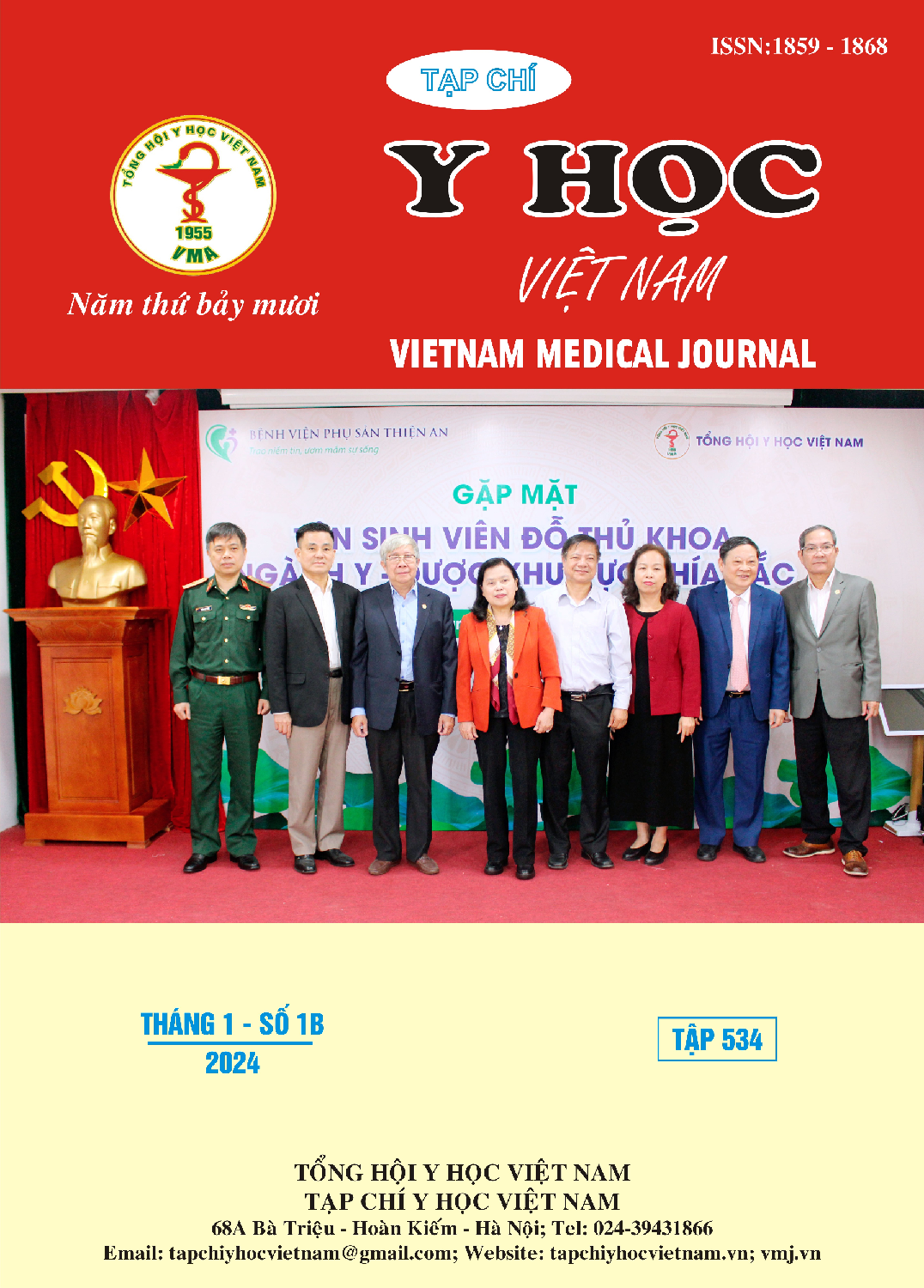STUDYING THE EFFECTIVENESS OF POSTOPERATIVE PAIN AFTER COLORECTAL SURGERY INDUCED BY FREE OPIOID ANESTHESIA
Main Article Content
Abstract
Objective: To campare the analgesic afficacy after colorectal surgery induced by free opioid anesthia. Method: Randomized, controlled intervention study of 98 patients who were over 18 years old, ASA I-III classification with normal neuropsychological status, scheduled for colorectal resection surgery from December 2019 to November /2021 at Viet Tiep Friendship Hospital, Hai Phong. Patients were randomly divided into two groups: Opiod anesthesia (OA group) and free opioid anesthesia (FOA group). General characteristics, surgical and anesthetic characteristics, and post-operative pain after colorectal resection surgery were collected. Results: The time to require the first analgesic dose was longer in the FOA group than in the OA group (85.73 ± 16.88 minutes vs. 77.16 ± 14.60 minutes; p = 0.009). VAS scores at rest and cough at H0 and H0.25 time points were significantly lower in the FOA group than in the OA group (p < 0.05). Compared with the OA group, the FOA group had significantly lower numbers of pain rescues and total amount of fentanyl rescue (p < 0.05). Patients in the FOA group had a sooner flatus time than the OA group (p = 0.011). Conclusion: Free opioid anesthesia for colorectal surgery is more effective in postoperative pain and has a shorter time to flatus than opiod anesthesia.
Article Details
References
2. Kim S. H., Stoicea N., Soghomonyan S. et al. (2014) Intraoperative use of remifentanil and opioid induced hyperalgesia/acute opioid tolerance: systematic review. Frontiers in pharmacology, 5, 108.
3. Lin M.-C., Huang J.-Y., Lao H.-C. et al. (2010) Epidural analgesia with low-concentration levobupivacaine combined with fentanyl provides satisfactory postoperative analgesia for colorectal surgery patients. Acta Anaesthesiologica Taiwanica, 48 (2), 68-74.
4. Mulier J., Dillemans B., Van Lancker P. (2016) Opioid free (OFA) versus opioid (OA) and low opioid anesthesia (LOA) for the laparoscopic gastric bypass surgery. Immediate post operative morbidity and mortality in a single center study on 5061 consecutive patients from March 2011 till June 2015. Eur J Anesthesiol, 33 (S54), 90.
5. Feld J. M., Laurito C. E., Beckerman M. et al. (2003) Non-opioid analgesia improves pain relief and decreases sedation after gastric bypass surgery. Canadian Journal of Anesthesia, 50 (4), 336.
6. Bakan M., Umutoglu T., Topuz U. et al. (2015) Opioid-free total intravenous anesthesia with propofol, dexmedetomidine and lidocaine infusions for laparoscopic cholecystectomy: a prospective, randomized, double-blinded study. Revista brasileira de anestesiologia, 65, 191-199.
7. Samuels D., Abou-Samra A., Dalvi P. et al. (2017) Opioid-free anesthesia results in reduced postoperative opioid consumption. J Clin Anesth Pain Med, 1 (2), 2-4.


